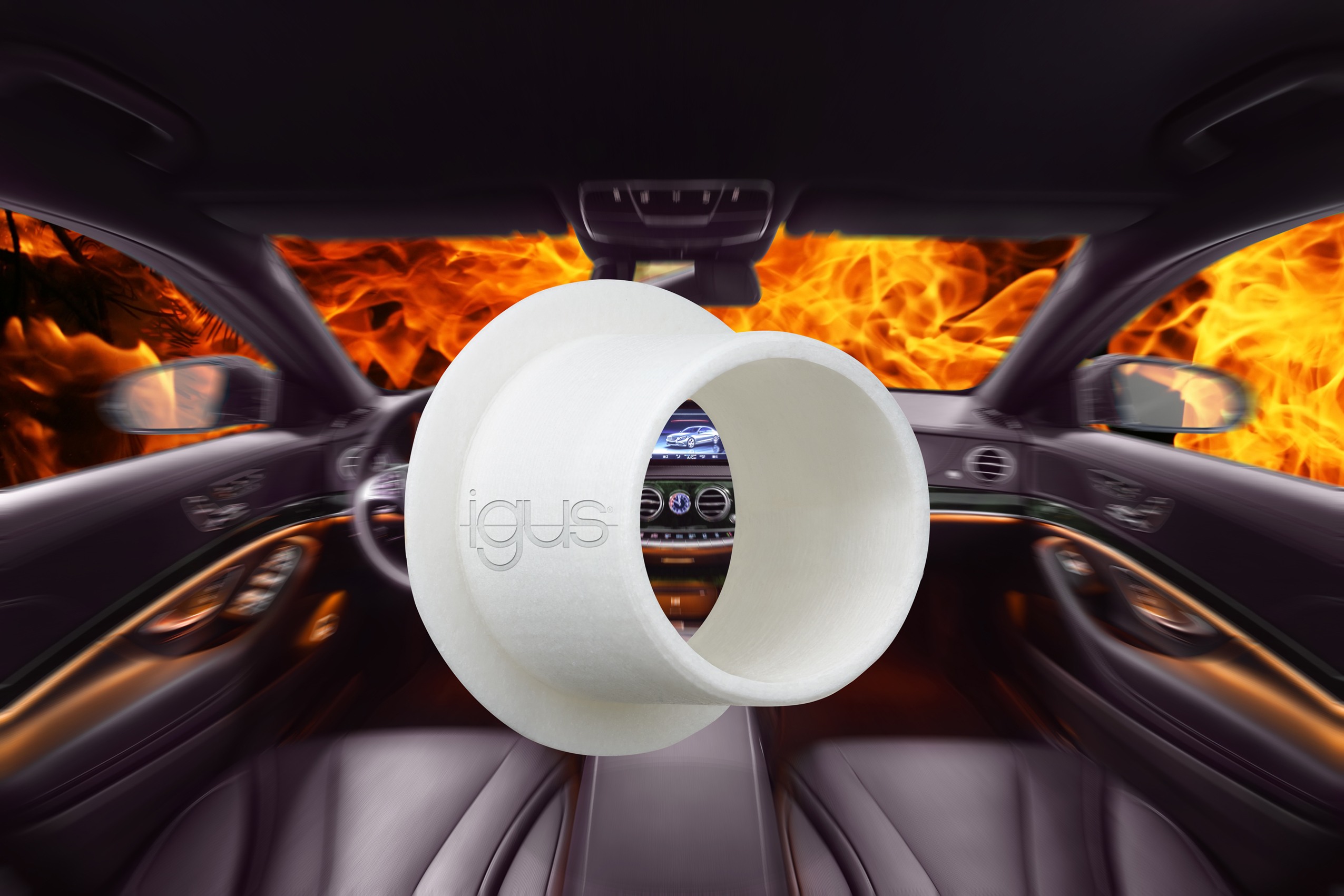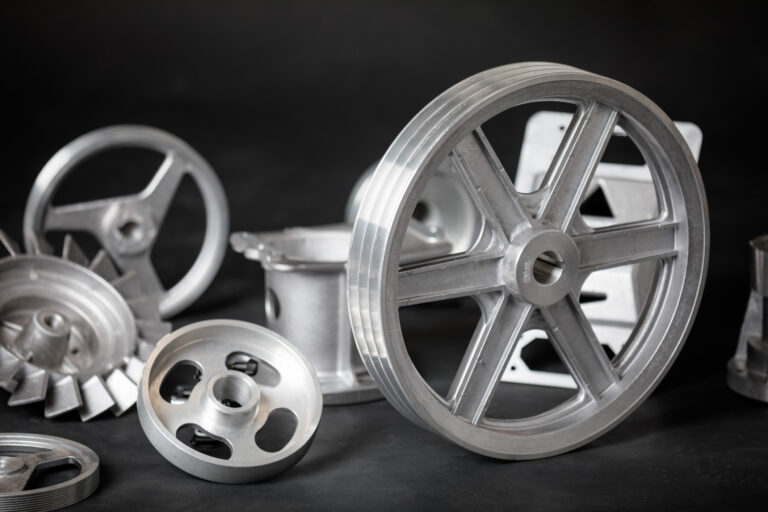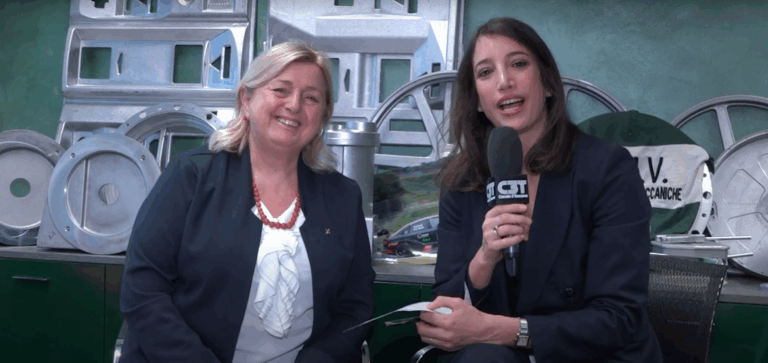“Safety First”: tribological powder for igus SLS technology exceeds the fire safety standard by five times.
The iglidur I3 3D printing material passes the FMVSS 302 tests required for the interior outfitting of vehicle cabins.
Proper construction techniques and materials are essential to effectively prevent fires inside automobile cabins. igus has pushed forward in this direction: iglidur I3 is extremely abrasion-resistant, suitable for applications subject to abrasion even in the most demanding situations, and has passed the combustion tests of the strict FMVSS 302 standards. In the tests, the measured burning rate was five times lower than the maximum allowed limit.
As revealed by appropriate investigations, vehicle fires are mainly caused by careless handling of matches and cigarettes. Therefore, materials with low flammability and flame propagation speed are necessary. This allows enough time to stop the vehicle even at high speed and to safely evacuate the cabin. The tribo-polymeric material for selective laser sintering, iglidur I3 SLS powder, is used for its robustness in vehicle interiors and has passed the fire tests of the FMVSS 302 regulation.
iglidur I3 stands out in international homologation procedures
Introduced as a federal motor vehicle safety standard (FMVSS) 302 in the United States, the test procedure describes the fire resistance requirements of materials used in the cabin of motor vehicles such as cars and trucks. The test involves burning a horizontally positioned specimen with a thickness of 2.02 mm using a 38mm flame. This determines the flame propagation speed of that particular material. The maximum allowed value was 4 inches/min, i.e. 102 mm/min. iglidur I3 has an average burning rate of only 18.8 mm/min, thus exceeding the requirements by five times.
Abrasion resistant and available with short lead times
Another significant advantage. Components made of iglidur I3 achieve a high mechanical strength intrinsic to the SLS production process and a surface finish that makes further machining unnecessary. With laser sintering, the produced parts can be used immediately both for prototype production and series production. Geometric complexity is also not a constraint. High manufacturing precision is always possible for components designed for moving applications. In the igus test lab, sliding bearings made with additive manufacturing technology were compared with similar components made of common selective laser sintering materials. In oscillating, rotating, and linear motions, the parts were at least three times more abrasion-resistant than the comparison materials. Not to mention that stockpiling or the use of special mounting tools will no longer be necessary. The printed components are immediately available. iglidur I3 can also be used by those who do not own a 3D printer. In these cases, igus offers a 3D printing service. Customers quickly receive their printed components: ordered parts are generally available within a week. To use this service, a CAD model of the part is required.
Source: Meccanica News




